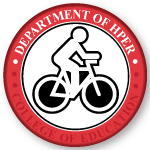Author ORCID Identifier
Olagoke - https://orcid.org/0000-0003-0271-4069
Document Type
Article
Publication Date
Summer 2022
Publication Title
Progress in Community Health Partnerships: Research, Education, and Action
Volume
16
Issue
2
First Page
205
Last Page
215
Abstract
Background: Community-based public health advocacy efforts are crucial to sustaining the low-cost/free breast cancer services that support underserved populations.
Objectives: We introduce two ways in which narrative theory may be a useful tool for developing advocacy materials and provide an example, using a community–academic partnership to promote Latina breast health in Chicago, Illinois.
Methods: Community and academic partners 1) engaged 25 Spanish-speaking Latinas in an advocacy workshop, 2) leveraged narrative theory to develop multi-media advocacy materials, and 3) disseminated materials to policymakers.
Lessons Learned: Our project highlights 1) that narrative theory may be useful to describe how Latinas engage policy-makers in relation to their needs and cultural norms, 2) the importance of flexibility and offering community members multiple options to engage policymakers, and 3) the importance of leveraging partners’ complementary strengths.
Conclusions: Narrative theory may be a useful tool for developing advocacy materials in community–academic partnerships.
Recommended Citation
Olagoke, A., Reyes, K., San Miguel, L. G., Torres, P., Robledo, C., Kling, W., ... & Molina, Y. (2022). Intentional Storytelling to Sustain Low-cost/Free Breast Cancer Services: A Latina Example of Community-driven Advocacy. Progress in Community Health Partnerships: Research, Education, and Action, 16(2), 205-215. https://doi.org/10.1353/cpr.2022.0024


Comments
This is the accepted version of an article published in John Hopkins University Press's Progress in Community Health Partnerships: Research, Education, and Action in the Summer of 2022 and can be accessed at https://doi.org/10.1353/cpr.2022.0024